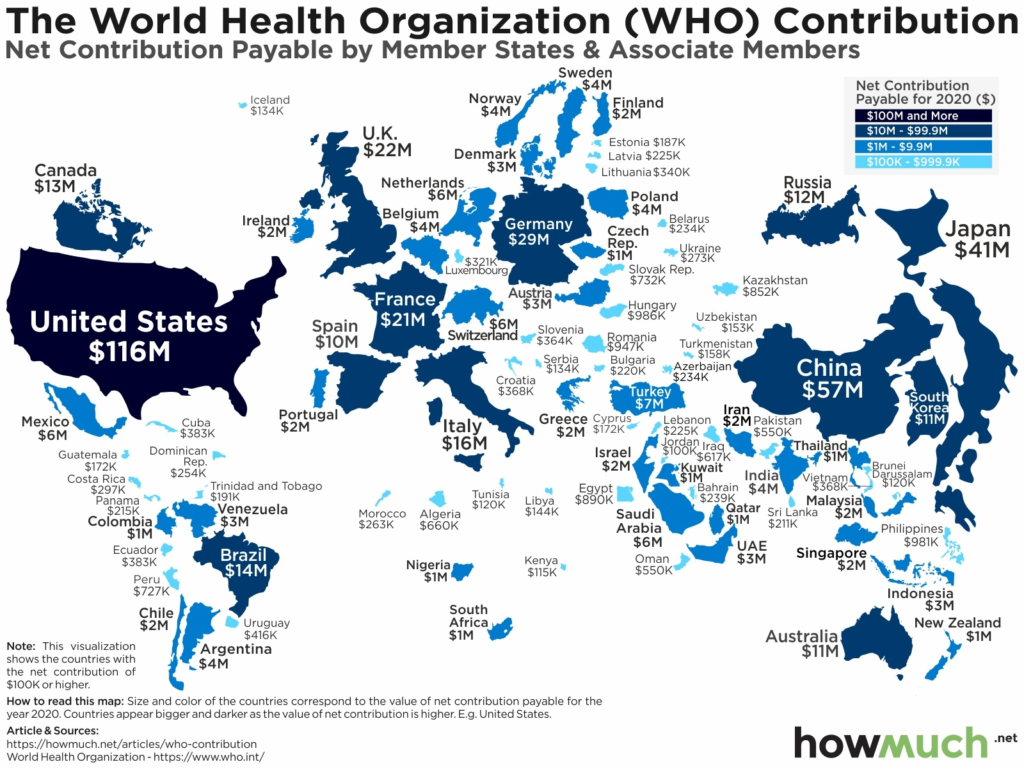US intent to withdraw from WHO and impact on Africa

By Nfor Hanson Nchanji
As one of his first executive orders, the new US president, Donald John Trump, withdrew his country from the World Health Organization. Trump said the organization’s handling of COVID-19 had ripped off the US. This is the second time Trump has announced such a withdrawal.
In 2020, Donald Trump announced that the US would withdraw from the WHO, but as per the status, this had to be within one year. Before one year to completely withdraw, Biden won the elections and reversed this decision after six months. But this time, Trump is on course to succeed because he has four more years to rule. He also has the support of the Senators and Representatives who may not vote against the withdrawal.
The US is the largest funder of the WHO and also takes part in the monitoring of diseases.
Trump also wondered why China which has 1.4 billion people contributes 90% less than the US pays to the WHO. He finds it disturbing that the organization is only ripping the US off their money, leaving out states with the largest population to pay less.
What this means to the WHO
The US withdrawal from the World Health Organization (WHO) could have several significant consequences for the organization which relies on huge funding from the country. According to HowMuch.net, the US pays the WHO a whooping $116M yearly, making it 24% of the entire budget of the WHO. China pays $57M, about 12% of the entire budget.
The WHO will be unable to catch up with the deficit except other nations could step up to cover the amount the US usually pays.

According to HowMuch.net, these are the top countries funding the WHO
1. U.S.: $116M (24% of total)
2. China: $57M (12% of total)
3. Japan: $41M (8% of total)
4. Germany: $29M (6% of total)
5. U.K.: $22M (4% of total)
6. France: $21M (4% of total)
7. Italy: $16M (3% of total)
8. Brazil: $14M (3% of total)
9. Canada: $13M (2% of total)
10. Russia: $12M (2% of total)
Impact on Africa
The withdrawal of the US from the WHO will be a major blow to the African continent where only a few countries like Algeria, South Africa, Nigeria, Libya, Morocco, and Tunisia contribute to the organization.
Since the US is a major financial contributor to the WHO. Its withdrawal would significantly impact the organization’s budget, potentially limiting its ability to fund critical health programs in Africa, such as:
Disease surveillance and outbreak response: This includes programs to monitor and control infectious diseases like Ebola, HIV/AIDS, malaria, and tuberculosis.
Immunization programs: Funding for vaccine development and distribution campaigns would be severely impacted.
Strengthening health systems: Support for building stronger health infrastructure, training healthcare workers, and improving access to quality healthcare in Africa would be diminished.
If the US leaves, the WHO will be weakened and, Africa will be more vulnerable to emerging health threats, such as new infectious diseases, antimicrobial resistance, and the impacts of climate change on health. The HIV campaign sponsored in Cameroon will also see a significant drop the level of vulnerability will be high.




